FREQUENTLY ASKED QUESTIONS
When the tissue (pulp) inside your tooth gets damaged or infected, it has to be removed. A root canal is a procedure that removes the tissue and/or infection from inside the canals of your tooth. You can think of an endodontist as a well-trained plumber. A small hole is made on the biting surface of your tooth and damaged tissue and infection roto-rootered out of the canals. The canals are cleaned and sealed. Then, you return to your dentist for a filling or crown.

Our goal is to make this the best dental appointment you have ever had! Talk to us and describe what is going on. Let us take some x-rays and complete an exam. We will explain our findings, review your options, financial commitment, and ensure that all of your questions are answered. Once you have decided to proceed with treatment, sit back and relax. You may feel pressure, but rest assured that you will be thoroughly numbed. We will take care of the rest!
Most endodontic procedures are finished in one appointment, in one hour. An additional appointment is sometimes indicated if you have a larger infection or complex dental anatomy requiring more time and care to complete the procedure correctly.
1. Please bring a form of identification, insurance information, and dental referral card (if one was provided to you by your general dentist).
2. Take your normal daily medications as directed. However, please do not premeditate with any pain reliever (Aleve, Advil, Tylenol, Asprin, etc) or anti-anxiety agent (Halcion, Valium, Xanax).
These medications are very effective in reducing pain and altering cognition. This can make diagnosing your dental problem difficult.
3. Please be prepared to provide us with details about what led you to schedule your appointment, including any symptoms you may be experiencing or your dentist’s planned restorative treatment (such as fillings or crowns) for the affected tooth.
4. We encourage patients to bring headphones so that if treatment is needed, you can listen to music, a podcast or book on your phone. Don’t worry, if you forget, we will provide headphones for your visit if desired.
5. All patients under age 18 years of age must be accompanied by a parent or legal guardian.
6. Our office will review your insurance coverage and estimate your out of pocket expense prior to your appointment. All fees are due the day services are rendered. We accept all major credit cards and offer financing through Care Credit.
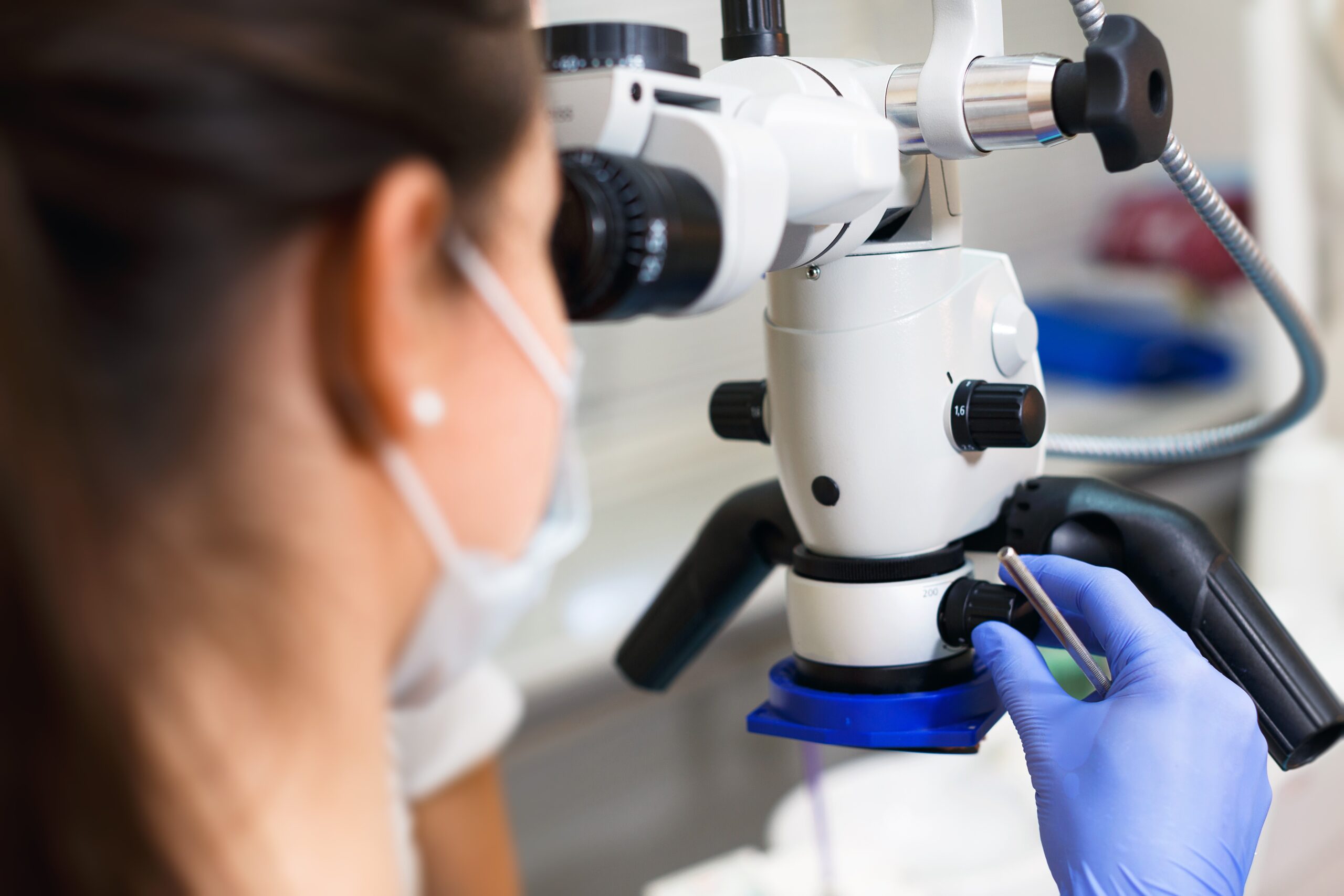
A specialized dentist known as an endodontist has undergone two extra years of training to effectively diagnose and treat dental issues related to the nerves inside teeth, otherwise known as pulp. Utilizing state-of-the-art equipment such as surgical microscopes and 3-D imaging, we are able to perform complex procedures such as root canals with precision and skill. Our expertise allows us to effectively manage pain, trauma, and repair damaged teeth. At our office, we value personalized care and aim to streamline the entire process from diagnosis to treatment. Thanks to our daily focus on root canals and similar procedures, we are able to achieve shorter procedure times and optimal outcomes.
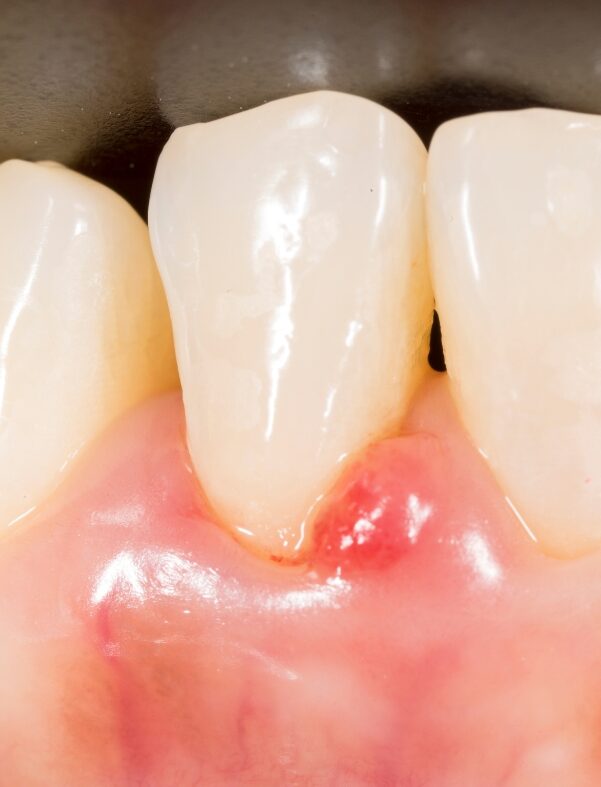
GINGIVAL ABSCESS
An abscess is often called a pimple, bubble, or boil. It indicates that a bacterial infection is present. On your skin, this is called a pimple. On your gingiva (gum tissue), it is called an abscess.
Read the labels on your medications. Be aware of what you are taking. Make sure that you do not exceed the maximum recommended daily doses.
*Patients who are unable to take some or all of the medications listed above due to allergy, history of ulcers, kidney or liver problems, pregnancy, or have any other contraindications/concerns should discuss alternatives with your doctor.



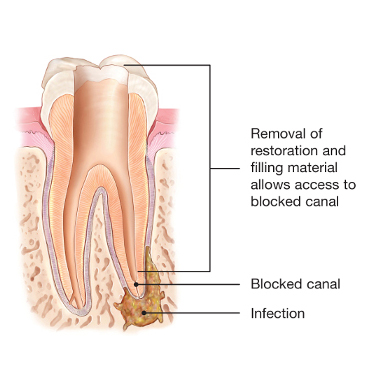
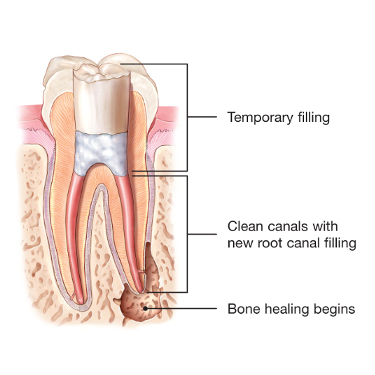
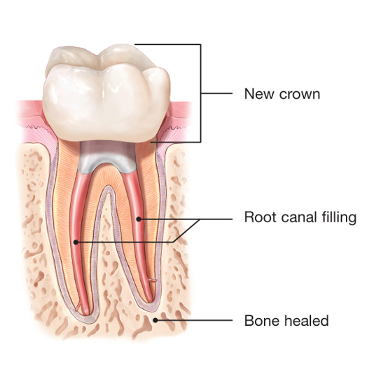
 We recommend chewing on the other side of your mouth until your dentist can permanently restore your tooth. Teeth that have had a root canal are fragile and protecting your tooth from biting forces minimizes the risk that you will develop a crack. Additionally, your gum tissue will heal faster and the temporary filling will stay in place longer if you avoid biting on the tooth in question.
We recommend chewing on the other side of your mouth until your dentist can permanently restore your tooth. Teeth that have had a root canal are fragile and protecting your tooth from biting forces minimizes the risk that you will develop a crack. Additionally, your gum tissue will heal faster and the temporary filling will stay in place longer if you avoid biting on the tooth in question.